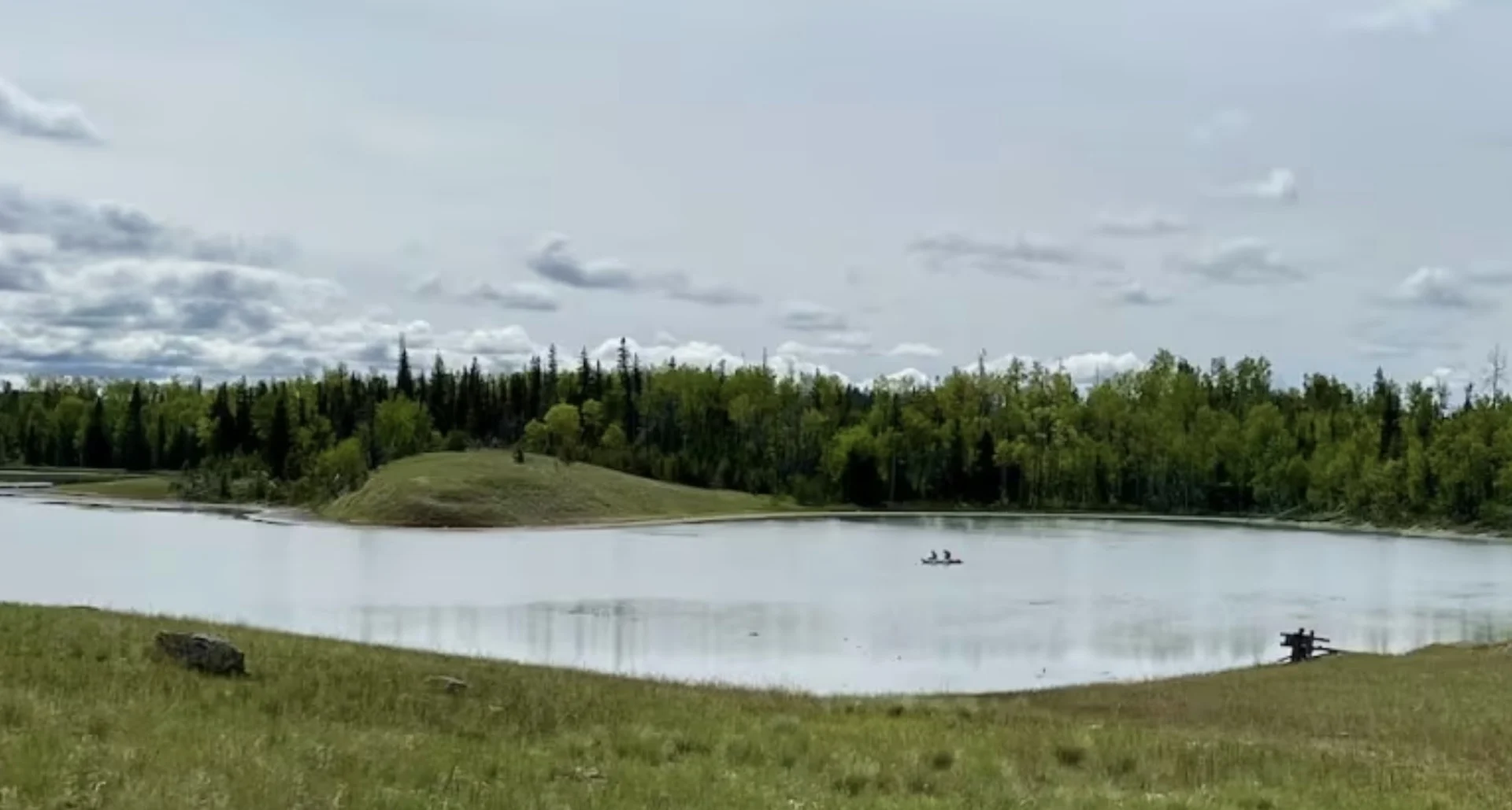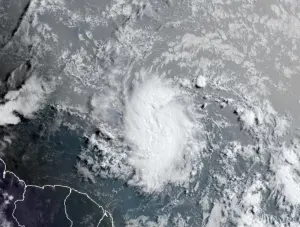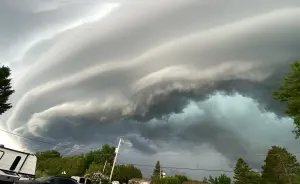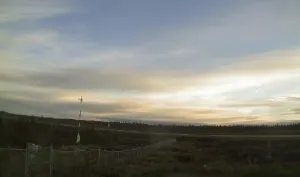
A shallow, salty lake in B.C. could point to origins of life on Earth
Scientists have mused for centuries over questions about the origins of life on Earth. As it turns out, the answer may lie in a small, unassuming lake in British Columbia's Interior.
Last Chance Lake, located about 150 kilometres northwest of Kamloops, B.C., is shallow and filled with murky water.
SEE ALSO: Natural, human impacts on animals seen in 2,000-year-old condor poop
A recent study from the University of Washington found it has just the right conditions to be what scientists call a "cradle of life" — a place where life could have spontaneously emerged billions of years ago.
"We're trying to answer one of the biggest unanswered questions in science, which is where did we come from?" said the study's senior author, David Catling.
Catling said Last Chance Lake supports the "warm little pond" hypothesis from 19th century scientist Charles Darwin. Darwin proposed life on Earth could have emerged in shallow lakes with the right ingredients.

A piece of salt crust is held by one of the researchers. Green algae can be seen in the middle, with black sediment at the bottom. (Submitted by David Catling)
Last Chance Lake has some key components of this cocktail, according to the researchers: It has high levels of salt, minerals from the volcanic flat it lies on — the Cariboo Plateau — and a very high concentration of phosphate.
In order for life to form, Catling says the concentrations of phosphate need to be 100 to one million times higher than the levels normally found in water bodies on Earth.
While there are several phosphate-dense bodies of water on Earth, the team found Last Chance Lake to have the highest levels ever recorded through a literature scan — information that was tucked away in the appendix of a master's thesis at the University of Saskatchewan from the '90s.
"It was … a bit of luck and a bit of persistence that allowed us to identify this," said Catling. "We thought that's pretty handy because we can actually drive there from Seattle."

The study's researchers walk on Last Chance Lake in September 2022. Most of the water in the lake evaporates during summer, forming a salt flat. (Submitted by Zack Cohen)
The team visited the lake three times over different seasons, noting the lake freezes over in the winter and dries up to form a salt flat at the end of the summer, when phosphate concentrations are highest.
Catling says these phosphate-dense lakes would have been more common on Earth around four billion years ago.
"It all seemed to fall into place," said Catling. "What we thought was happening, was happening."
Hydrothermal vents
CBC science columnist Torah Kachur says the warm little pond theory is one of several that try to explain the beginnings of life on Earth.
Another popular hypothesis is that life was created from high pressure, mineral-dense hydrothermal vents located at the bottom of the ocean.
She says while lakes like Last Chance Lake don't have the same high-pressure energy as a hydrothermal vent, they have all the necessary ingredients.
"When Darwin suggests something — he was right about a lot of things — we add it to the list of places that we need to investigate more," said Kachur.
WATCH: What this 2,200-year-old bird poop pile can tell us about the past
Extraterrestrial implications
Previous studies about early life have also focused on B.C. In 2011, a team of American and Canadian scientists explored two B.C. lakes to study the earliest forms of microbe-based life, fine-tuning exploratory techniques and clues that might be useful on future space missions.
Catling said the findings from this study suggest life may have formed in a similar way on other planets at some point in time.
The rock formation that leads to the development of lakes similar to Last Chance Lake are common on rocky planets, he says.
Thumbnail courtesy of David Catling via CBC.
The story was originally written by Michelle Gomez and published for CBC News. It contains files from Shelley Joyce and CBC's Airplay.









